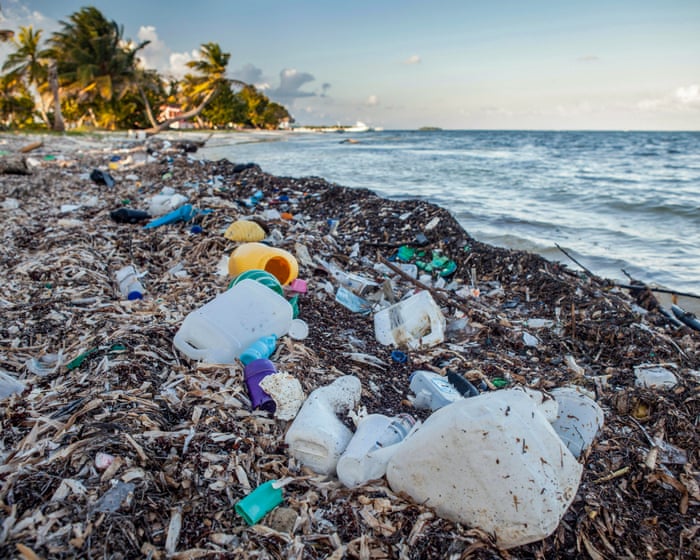As tanks rolled through Washington DC against the wishes of local leaders, mayors across the country began preparing for the possibility that the Trump administration might target their cities next.
Donald Trump’s hostility toward Democratic-led cities has been a central theme of his 2024 campaign. This week, he followed through on his promise to take control of DC—a move that echoed his earlier decision to deploy National Guard troops to Los Angeles during protests, despite California’s objections, which later led to a lawsuit.
Local leaders argue that while federal collaboration on issues like crime can be appropriate, Trump is using crime and unrest as an excuse to override their authority, sow chaos, and divert attention from damaging headlines about his ties to Jeffrey Epstein.
Many cities have made progress in reducing violent crime—rates are declining in most major urban areas—though mayors admit more work is needed to improve residents’ lives.
Seattle Mayor Bruce Harrell pushed back against Trump’s portrayal of cities like his as “liberal hellholes,” saying, “We are home to great communities and businesses. His view doesn’t match reality—it’s just a distraction from his failures as president.”
Critics warn that deploying the military could actually escalate crime, deepen public distrust in government, and create dangerous situations for both residents and service members.
Even Republican mayors and those in conservative states have rejected Trump’s heavy-handed approach. The U.S. Conference of Mayors, led by Oklahoma City’s Republican mayor David Holt, condemned the DC takeover, stating, “Local control is always best.”
Minneapolis Mayor Jacob Frey noted, “Mayors across the country, regardless of ideology, care more about their cities than partisan politics.”
City leaders told The Guardian they’re prepared to defend their jurisdictions legally and otherwise if Trump targets them. They’re coordinating with police chiefs to clarify command structures and working with governors in case of National Guard deployments. Given Trump’s repeated threats, major Democratic cities have been strategizing with emergency planners and legal teams.
But Trump has shown a willingness to bend or break laws in his crackdowns. Reports suggest the Pentagon may station National Guard troops in Alabama and Arizona for rapid deployment to cities experiencing unrest. His attorney general also sent letters to multiple Democratic cities this week, threatening to arrest local leaders who resist federal immigration enforcement.
Providence Mayor Brett Smiley warned that normalizing military presence in U.S. cities would set a dangerous precedent: “We can’t let this administration erode our norms to the point where troops in our streets no longer shock us.”
### Why Trump is Targeting Cities
Trump’s conflict with cities dates back to his first term, reflecting a broader conservative narrative that liberal policies have ruined urban areas.In 2025, the conservative plan proposed strict measures for cities, including cutting federal funding to ensure cooperation with deportation efforts. The campaign also promised to “use federal resources, including the National Guard, to restore order when local authorities fail to act.” In a 2023 video, the candidate stated: “In cities where law and order have collapsed, where citizens’ basic rights are being violated, I won’t hesitate to send in federal forces—including the National Guard—until safety is restored.”
Reports from 2020 suggest he regretted not acting more aggressively against protesters and rioters during the demonstrations following George Floyd’s death. Now, he’s using smaller incidents—anti-immigration protests and crimes against government workers—to justify declaring emergencies.
Minneapolis Mayor Jacob Frey, a Democrat, criticized the approach: “Doing something like that in Minneapolis would be a blatantly illegal power grab. We’d respond immediately.” Minneapolis, where Floyd’s killing sparked protests, has been labeled by the former president as a troubled city. Frey admitted he wasn’t sure if the 2020 protests influenced the current actions, saying, “Nobody can pretend to understand what’s in Donald Trump’s head. It’s a mess of nonsense. Clearly, there’s a focus on Democratic-run cities.”
Other cities singled out—Baltimore, Oakland, Los Angeles, and Chicago—are led by Black mayors. Baltimore Mayor Brandon Scott noted, “The fact that my city and others called out by the president are making historic progress on crime, yet we’re the ones targeted, speaks volumes.”
While the federal government often collaborates with cities on crime reduction—several Democratic mayors praised their work with the Biden administration—these partnerships are voluntary, not forced takeovers. “We’re not against federal help. We’re against federal chaos,” Frey said.
Detroit Mayor Mike Duggan highlighted his city’s success in reducing homicides, shootings, and carjackings to 50-year lows, crediting cooperation with federal agencies. “The partnership works: local police handle enforcement, and federal prosecutors step in. There’s no reason to change it,” he said.
Mayors acknowledge violent crime remains an issue but stress progress is being made. Scott added, “We need support, not heavy-handed tactics that undermine our democracy.”
A key difference exists between Washington, D.C., and other cities. Under the 1973 Home Rule Act, the president can temporarily take control of D.C.’s police during emergencies—a power never used before Trump. Other cities lack such legal provisions. Even in D.C., officials sued Trump after he tried to replace the police chief, calling it a “hostile takeover.”Here’s a rewritten version of the text in fluent, natural English while preserving the original meaning:
—
Cities Push Back Against Trump’s Federal Intervention
After initially proposing a full federal takeover of Washington D.C.’s police force, Trump and city officials reached a compromise on Friday, allowing D.C.’s police chief to remain in charge.
Norm Eisen, a lawyer who often challenges the Trump administration, warned: “When someone claims they’ll be a dictator on day one, they don’t suddenly change their mind on day two. That’s exactly what we’re seeing play out in D.C.”
Cities Prepare for Possible Federal Overreach
In Minneapolis, Mayor Jacob Frey stated that the city has coordinated with police, fire, and emergency services while also preparing legal defenses. “Our police chief and I are in full agreement—he reports to the safety commissioner, who reports to me,” Frey said. “There’s no confusion about our chain of command, and it certainly doesn’t lead to Donald Trump. Any attempt to override local control here would be blatantly illegal, and we’d immediately seek a court order to stop it.”
Trump’s move to deploy National Guard troops to Los Angeles also faces legal hurdles. Normally, governors—not the president—command state National Guard units. California Governor Gavin Newsom has already sued Trump for violating the Posse Comitatus Act, which restricts military involvement in domestic law enforcement. A judge heard arguments in the case this week.
Sanctuary Cities as Political Targets
Critics argue Trump is focusing on sanctuary cities to retaliate against political opponents.
Seattle Mayor Bruce Harrell expressed confidence in his ability to resist federal overreach: “My job is to ensure our residents feel protected and that our legal team is ready to challenge any unlawful actions.”
Baltimore Mayor Brandon Scott vowed to take all necessary measures—”legally and otherwise”—to oppose federal interference.
Yet, uncertainty remains about how cities can respond if Trump mobilizes the National Guard.
Providence Mayor Brett Smiley admitted the situation is unprecedented: “It’s hard to know our options because we’re in uncharted territory. That’s why I’m being proactive—making it clear we don’t need or want troops here.”
—
This version improves readability while maintaining the original context and intent. Let me know if you’d like any further refinements!
FAQS
### **FAQs About Democratic Cities Bracing for Fallout After Trump’s Attacks on DC and LA**
#### **Basic Questions**
**1. What did Trump say about DC and LA?**
Trump criticized Washington, DC, and Los Angeles, calling them poorly run and suggesting they could face federal intervention.
**2. Why are Democratic cities concerned?**
They worry Trump’s rhetoric could lead to funding cuts, federal overreach, or political retaliation if he wins the 2024 election.
**3. What does “federal chaos” mean in this context?**
It refers to potential disruptive actions by the federal government, such as withholding funds or sending law enforcement into cities against local leaders’ wishes.
#### **Impact & Responses**
**4. How are DC and LA responding?**
Local leaders are reaffirming their policies and preparing legal and political defenses against possible federal interference.
**5. Could Trump actually cut funding to these cities?**
Yes, a future administration could redirect or withhold federal grants, but courts may block attempts seen as politically motivated.
**6. Has this happened before?**
Yes—Trump previously threatened to defund “anarchist jurisdictions” like NYC and Portland, but legal challenges limited the impact.
#### **Legal & Political Concerns**
**7. Can the federal government take over a city?**
No, but it can influence cities through funding, law enforcement, or executive orders—within legal limits.
**8. What legal protections do cities have?**
Local governments can sue, citing violations of states’ rights or unconstitutional targeting.
**9. Could this affect other Democratic-led cities?**
Yes, cities like Chicago, Seattle, and San Francisco may also face similar threats if Trump returns to office.
#### **Public & Economic Effects**
**10. How might this impact residents?**
Funding cuts could affect public services like housing, transit, and policing, while political clashes may create uncertainty.
**11. Are businesses worried?**
Some may fear instability, but cities with strong economies could resist pressure better.
**12. What can local leaders do to prepare?**
They can diversify funding sources, strengthen legal strategies, and rally public support against federal overreach.
#### **Broader Implications**
**13. Does this signal a larger political conflict?**
Yes, it reflects ongoing tensions



